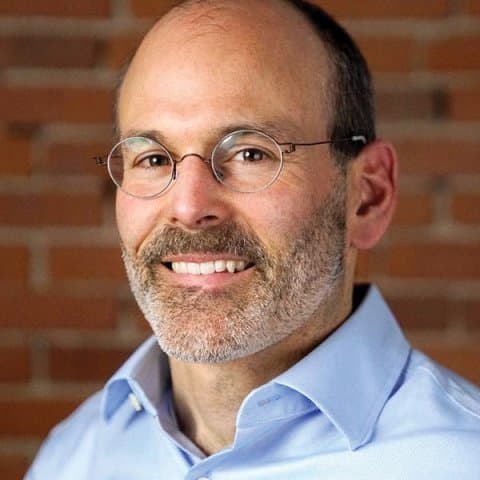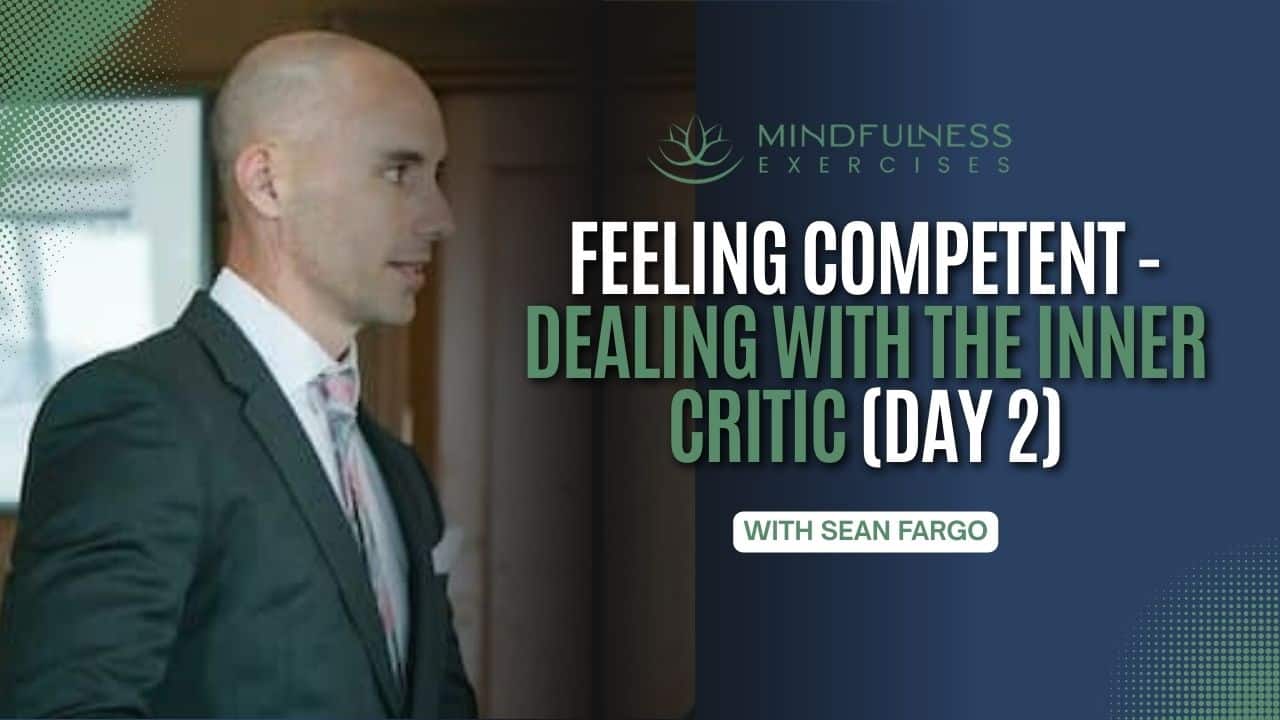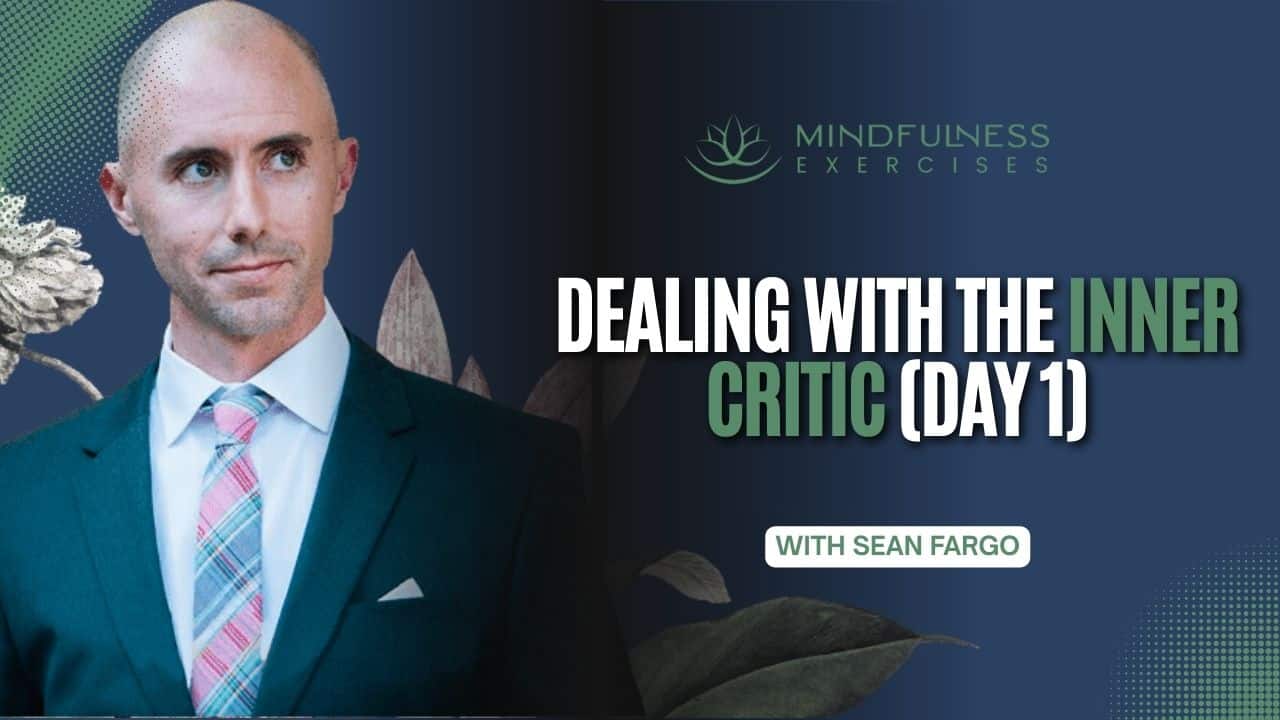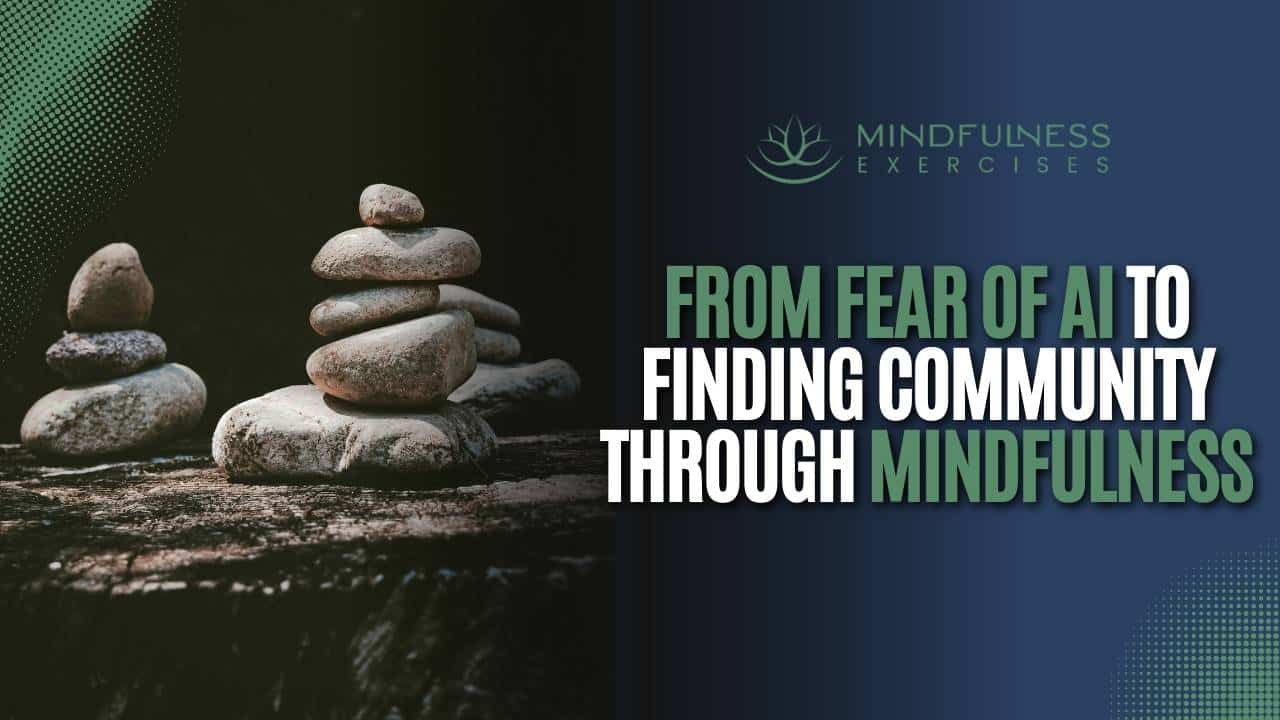Listen now
Myths and misconceptions about anxiety can prevent us from overcoming our struggles with it, holding us back from the greater calm and ease we seek. When we don’t understand the habit cycles around anxiety we can get stuck repeating them, unable to move forward.
In this episode, best-selling author, researcher and psychiatrist Dr. Jud Brewer shines a light on anxiety. Dr. Jud combines ancient Buddhist psychology with modern neuroscience to help bring awareness to how anxiety functions and what ultimately is most helpful for minimizing anxiety-related suffering.
Dr. Jud Brewer previously spoke about anxiety in episode #041, Unwinding Anxiety. In that episode, he breaks down the steps necessary to mindfully interrupt the anxiety habit loop.
Sponsored by our Mindfulness Meditation Teacher Certification Program
MindfulnessExercises.com/Certify
What You’ll Learn in This Episode:
Show Notes:
Why the original cause of our anxiety doesn’t really matter
Anxiety quickly becomes a habit, and the cycle of anxiety gains momentum when we worry about what originally caused it. We could spend a lifetime trying to trace our anxiety back to its original source. But even if we were to find it, how would that help us heal? Dr. Jud reminds us that no model of behavioral change is dependent on looking back.
“The truth is, and this can be hard for some people to take, the why doesn’t actually matter when it comes to working with the anxiety. [...] Now, this isn’t to say that childhood trauma or childhood experiences don’t put people at risk or aren’t important, I’m not saying that. But I’m just saying if you’re asking the question, ‘How do I work with the behavior?’ [Why it started] doesn’t actually matter.”
Anxiety as discomfort with uncertainty and change
The threat of unexpected change can be anxiety-provoking. In an effort to feel safe, we try our best to solidify our reality, including our own identity. Identifying as unworthy is just one of these unhelpful methods of self-protection. In reality, however, we are worthy. What’s more, everything is always changing. When we cease fighting these truths and lean into them instead, anxiety begins to dissipate.
“The only permanent thing is impermanence, the only unchanging thing is change itself. [...] The brain is basically trying to predict the future and trying to be as certain as possible, and one way that it fools itself into doing that is by saying, ‘I am a stable entity. I’m not changing.’ Now, the more we can see that holding onto that identity leads to suffering, the easier it is to let it go.”
Unwinding the myth that anxiety has some benefits
It is a myth that a minor amount of anxiety is necessary as motivation or to help us perform well and get stuff done. Dr. Jud traces the origins of this myth to the misinterpretation of studies done in the early 1900s that confuse anxiety with arousal. Another myth is that worrying can give us control. But the feeling of control is not the same as being in control. With mindful observation, we can uncover the behaviors we perceive as rewarding that drive our anxiety habit.
“That feeling of worry is a feeling, it’s a physical sensation. This can trigger a mental behavior, and that mental behavior can be worry itself. So, a feeling of worry can trigger a behavior of worry. And I think that’s really important to point out because a lot of people think of behaviors as eating or drinking or smoking or going on social media. But mental behaviors are just as valid and can drive habit loops just as much as physical behaviors.”
What actually helps us become less anxious
Ancient Buddhist philosophy and the latest scientific research agree that mindfulness is what is most effective when it comes to interrupting anxiety loops. This includes mindfulness-based stress reduction programs, mindfulness-based cognitive therapy and other forms of mindfulness training, such as Dr. Jud’s app, Unwinding Anxiety. In clinical trials, the Unwinding Anxiety app decreased anxiety for participants by up to 67% in just 2 months.
“If you really target these habit loops, these mechanisms of how anxiety forms in the mind, whether you look at (scientific models or) the Buddhist models around being identified with our emotions and getting caught up in behaviors that are trying to make our anxiety go away but actually make it worse, like worry, if we can target those mechanism directly, we can actually affect significant change that amounts to big, clinically relevant changes.”
Prioritizing habit interruption above all
There’s a popular saying among mindfulness teachers and others working with mind training: ‘Don’t just do something, sit there!’ When acting mindfully feels out of reach, sometimes the best thing we can do is nothing. The Buddha advised the same, saying in the Pali Canon that it is better to bite down and clench your teeth than say something harmful. Doing nothing is also an important skill for mindfulness teachers to model.
“Somebody comes at us and they’re all anxious and distressed, they are just sneezing on our brain that social contagion of anxiety, and for us to mentally mask up, is not to do something, but it’s to sit there and be with it and not catch that contagion. Because if we do something, we might be doing something to make ourselves feel better, because it feels better to be doing something for somebody that’s in distress, but that might actually be worse than sitting there and bearing witness and being with somebody’s distressing experience. And modeling, ‘Oh! I as a teacher can be with distress, even if it’s somebody else’s distress.’ And that in itself begins the modeling process and then we can work with them and their anxiety in the moment.”
Interrupting anxious patterns with curiosity
Pausing and doing nothing is one way to stop an anxious habit. Being curious can also show us a path forward by helping us differentiate between helpful and unhelpful behaviors. For example, Dr. Jud trains people to interrupt anxiety-related habit loops by relying 100% on curiosity. We might ask ourselves, ‘What did I get in the past from worrying?’ Curiosity makes disenchantment possible by opening our eyes to how unrewarding anxiety actually is. The insight that arises from curiosity then prevents us from returning to past, unhelpful behaviors. As teachers, we also become better helpers when we are curious.
“The framework isn’t one that’s just about, ‘Hey, just walk somebody through these steps.’ This is really about exploring these ourselves as teachers so that we can actually do skillful inquiry with someone and know where to be curious and where to kind of lean back. [...] Really knowing these gears and knowing these steps from our own experience is the best way to be able to feel into where our boundaries are and where to say, ‘Oh, let me refer you to somebody, let me get you somebody to help here, because this is beyond what I can do.’”
Additional Resources:

About Dr. Jud Brewer:
Jud Brewer, MD, PhD, known as “Dr. Jud” to most, is a New York Times best-selling author and thought leader in the field of habit change. His teachings blend over 20 years of mindfulness training experience with his career in scientific research.
As a psychiatrist and internationally known expert in mindfulness training for treating addictions, Dr. Jud has developed and tested novel mindfulness programs for habit change, including both in-person and app-based treatments for anxiety, emotional eating, and smoking.
He is the author of The Craving Mind: From Cigarettes to Smartphones to Love, Why We Get Hooked and How We Can Break Bad Habits and the New York Times best-seller, Unwinding Anxiety: New Science Shows How to Break the Cycles of Worry and Fear to Heal Your Mind.
Dr. Jud is the director of research and innovation at Brown University’s Mindfulness Center, where he also serves as an associate professor in Behavioral and Social Sciences at the Brown University’s School of Public Health and Psychiatry at the School of Medicine.



